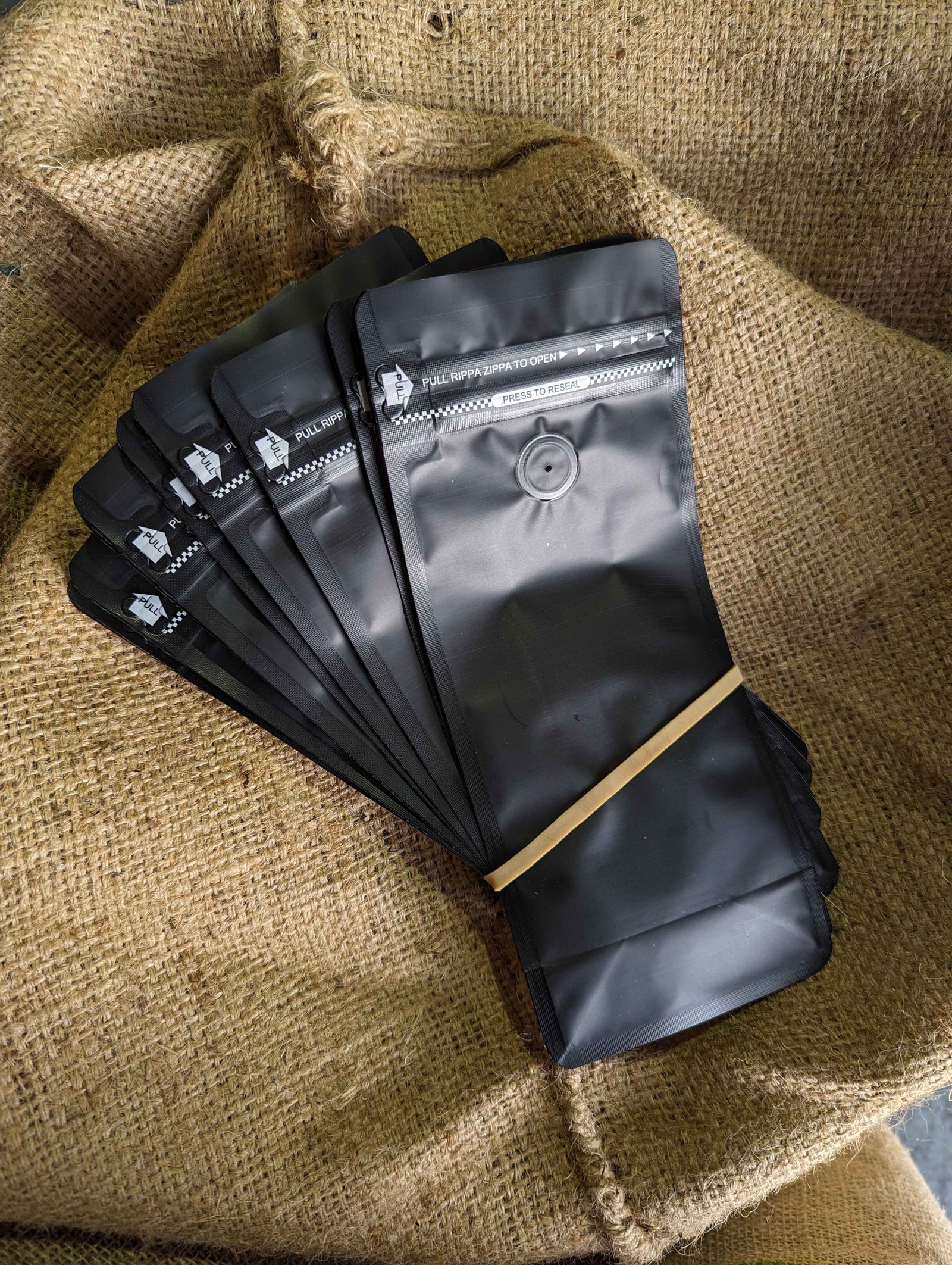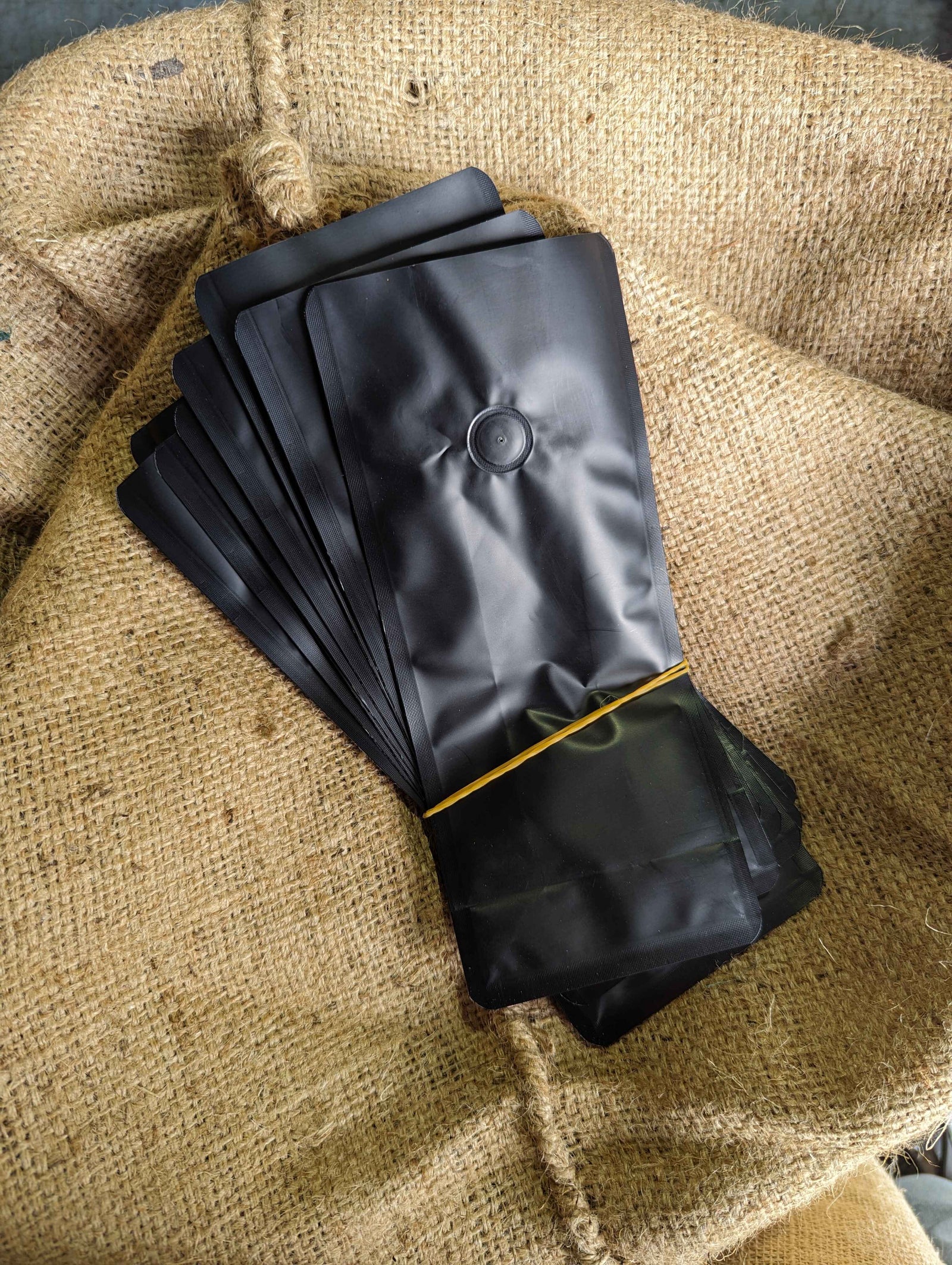C O F F E E P R O F I L E
In the lush, high-altitude region of Kirinyaga, Kenya, coffee farmers have long been cultivating exceptional beans. Among them are over 1,500 dedicated members of the Thirikwa Farmers’ Cooperative Society, who deliver their carefully handpicked cherries to the Gakuyuini Washing Station. What makes this cooperative even more unique is that more than a quarter of its members—670 women—play a vital role in the production of some of Kenya’s finest coffee.
Each farmer tends to small plots, typically less than one hectare, where about 250 coffee trees are intercropped with food crops like maize and legumes. Though their yields may be modest, these farmers have embraced specialty coffee cultivation, which elevates the value of every cherry they pick. For many, this is a family endeavor—everyone helps during the harvest, ensuring that only the ripest cherries make it to the mill on the same day they are picked.
At the Gakuyuini Washing Station, the cherries are carefully sorted, removing underripes, overripes, and any foreign matter. The cherries are pulped and then fermented for 12 to 16 hours before being washed with clean river water. This water is recirculated to minimize waste, then safely disposed of in seepage pits. After washing, the beans are sun-dried on raised beds for around two weeks, turned regularly to ensure even drying and shielded from the elements to prevent cracking. The result is a coffee that is as meticulous as the process behind it.
This particular lot is a Peaberry (PB), a rare and special coffee bean mutation where only one rounder, denser bean forms inside the cherry instead of the usual two. Peaberries, which occur in only about 5% of coffee cherries, are known for their concentrated sweetness and balanced flavor profile. Their round shape contributes to a more even roast, creating a cup that stands out for its complexity and liveliness.
Kenya has long held a reputation for producing some of the world’s most sought-after coffees, thanks to its rigorous attention to detail and quality. Smallholder farmers like those in the Thirikwa cooperative are at the heart of this industry, making up 99% of Kenya’s coffee farmers. Their farms, though small, cover more than 75% of the country’s coffee-growing land and produce nearly 70% of its coffee. Through their dedication, Kenya continues to lead in producing meticulously processed, high-quality coffee.
In this Gakuyuini Kirinyaga Washed Peaberry, expect a lively structure with vibrant acidity, complemented by rich, sweet notes—a perfect reflection of Kenya’s renowned coffee heritage.

 Matte Black Coffee Bag Bundle - With Valve & Rippa Zippa
Matte Black Coffee Bag Bundle - With Valve & Rippa Zippa Matte Black Coffee Bag Bundle - With Valve
Matte Black Coffee Bag Bundle - With Valve






